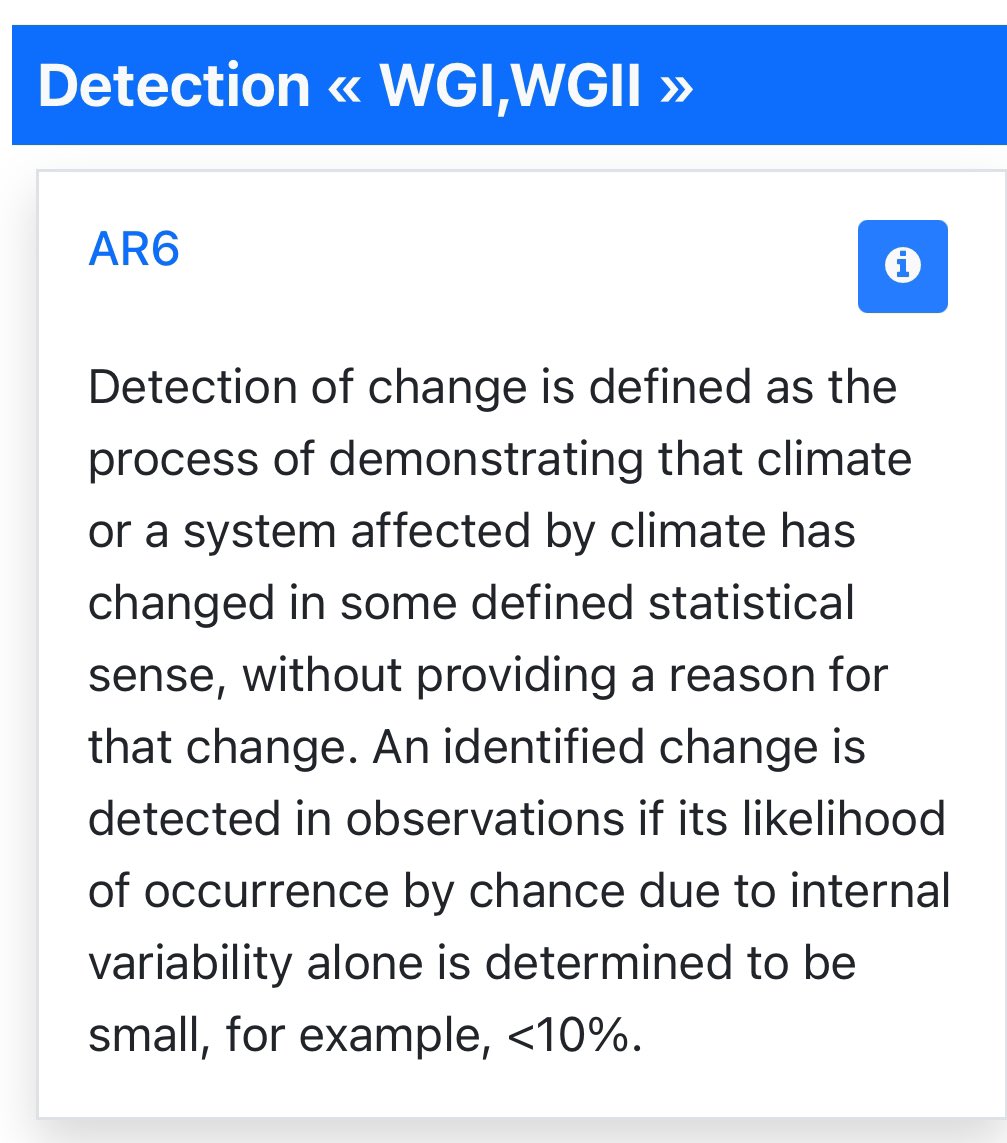“counter-opinion masquerading as fact checking”
Very good look at “fact checking” by @JohnTierneyNYC
Very good look at “fact checking” by @JohnTierneyNYC
https://twitter.com/johntierneynyc/status/1394419948655611905
I documented the clear use of flawed information by “Climate Feedback” to censor views apparently accurate but I welcomed
⤵️
⤵️
https://twitter.com/RogerPielkeJr/status/1282417298351878144
MIT’s Emanuel has a fine academic record but he also states that his extreme views on disaster contradict the IPCC consensus
By selecting him as a “fact checker” to censor others, Facebook is able to stealthily counter the IPCC consensus while still invoking “facts”
Clever!
By selecting him as a “fact checker” to censor others, Facebook is able to stealthily counter the IPCC consensus while still invoking “facts”
Clever!
Emanuel is a regular go-to by reporters to counter IPCC - not directly but by countering those who invoke the IPCC consensus on extreme weather and disasters
Emanuel was called in to justify removing me at 538 in 2014 & more recently is used to bludgeon @ShellenbergerMD
Facts!
Emanuel was called in to justify removing me at 538 in 2014 & more recently is used to bludgeon @ShellenbergerMD
Facts!
If you ever wonder why my research on hurricanes & disasters is never mentioned in the major media despite being widely cited & in IPCC, it’s very good science but very bad “facts”
No reporter wants to risk being “fact checked” by citing these bad facts🤷♂️
tandfonline.com/doi/full/10.10…
No reporter wants to risk being “fact checked” by citing these bad facts🤷♂️
tandfonline.com/doi/full/10.10…
MIT's Emanuel has effectively monetize RCP8.5 by selling hurricane projections to gov't & industry (including fossil fuel)
I wouldn't deny anyone the chance to make a buck off their expertise, but these bucks should be relevant when appointing "independent fact checkers"😎

I wouldn't deny anyone the chance to make a buck off their expertise, but these bucks should be relevant when appointing "independent fact checkers"😎


I was once a co-collaborator with Emanuel (& R. Mendelsohn) on a World Bank project on hurricane risk (L)
I resigned from the project when I learned how much $👀 Emanuel was being paid by the WB to produce "synthetic hurricane tracks" (R)
Emanuel has been after me ever since

I resigned from the project when I learned how much $👀 Emanuel was being paid by the WB to produce "synthetic hurricane tracks" (R)
Emanuel has been after me ever since


Emanuel uses RCP8.5 in extreme projections at odds with IPCC & uses those pubs to recruit clients for his business selling "synthetic hurricane tracks" from these papers
He uses his "fact checking" platform against anyone who openly expresses a more mainstream view of hurricanes

He uses his "fact checking" platform against anyone who openly expresses a more mainstream view of hurricanes


Don't take it from me, Emanuel associates (below) almost all of his publications since ~2006 to the marriage of his research & his business
windrisktech.com/publications.h…



windrisktech.com/publications.h…




So when Emanuel was writing in 2014 to undercut my peer-reviewed research on hurricanes & disasters, you may have thought he was making a set of scientific arguments. Maybe so, but he was also writing to preserve a business model, a very lucrative one 

Emanuel has parlayed his standing into a prominantrole as "fact checking" gatekeeper at Climate Feedback, where he routinely attacks anyone who cites IPCC consensus on extreme events here are two false claims from Emanuel just this month . . . 

First
In a "fact check" of a new book by Steven Koonin Emanuel cites a recent PNAS paper (L) but fails to reveal that that paper was followed by a major correction (R) that undercut the findings Emanuel is citing
Fact check fail

In a "fact check" of a new book by Steven Koonin Emanuel cites a recent PNAS paper (L) but fails to reveal that that paper was followed by a major correction (R) that undercut the findings Emanuel is citing
Fact check fail


Second
Emanuel says "no one familiar with the global record of tropical cyclones would look at data prior to 1980"
There is plenty of data worth looking at
Just to cite one example, we've published global data on TC landfalls from 1970
journals.ametsoc.org/view/journals/…
Fact check fail
Emanuel says "no one familiar with the global record of tropical cyclones would look at data prior to 1980"
There is plenty of data worth looking at
Just to cite one example, we've published global data on TC landfalls from 1970
journals.ametsoc.org/view/journals/…
Fact check fail

Kerry's a nice guy
He also is massively conflicted in his dual roles as a highly successful RCP8.5 salesman & powerful "independent fact checker" of RCP8.5-based claims
And Kerry is not unique in this
It persists because other than right here, you'd never know about it
/END
He also is massively conflicted in his dual roles as a highly successful RCP8.5 salesman & powerful "independent fact checker" of RCP8.5-based claims
And Kerry is not unique in this
It persists because other than right here, you'd never know about it
/END
*unwelcomed
• • •
Missing some Tweet in this thread? You can try to
force a refresh
















